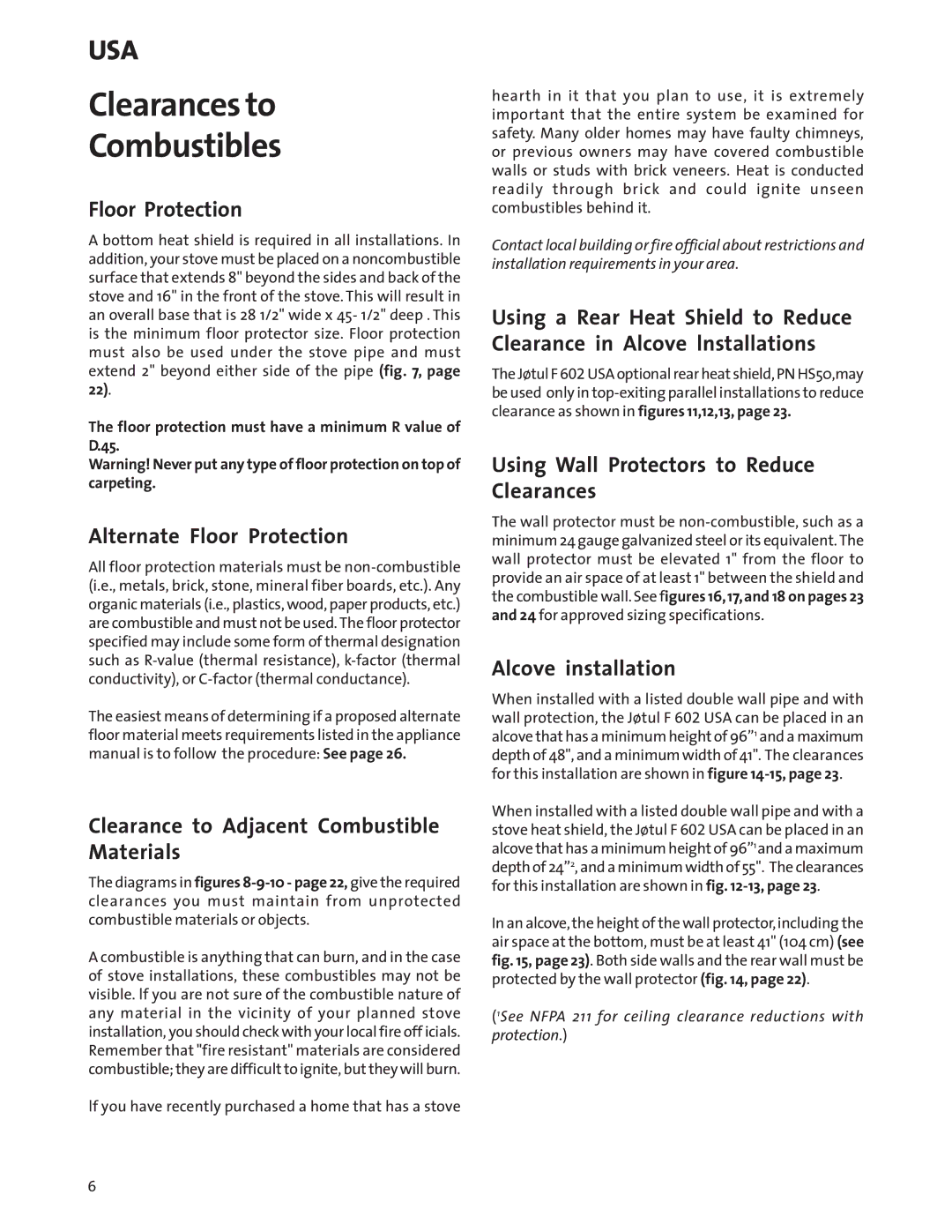Wood Stove specifications
Jotul wood stoves have gained a reputation for their exceptional craftsmanship and reliable performance. Founded in Norway in 1853, Jotul has become synonymous with quality and innovation in the world of wood burning. One of their hallmark features is the unique cast iron construction, which not only provides superior heat retention but also ensures durability and longevity. This material allows the stove to radiate heat evenly over a prolonged period, making it an efficient heating source during the cold months.One of the standout technologies that Jotul employs is their advanced combustion system. This system promotes a cleaner and more efficient burn by maximizing the combustion of wood gases, which in turn reduces smoke emissions and particulate matter. This is not only beneficial for the environment but also complies with stringent regulatory standards. Many Jotul models achieve EPA certification, which signifies their commitment to sustainability and eco-friendly practices.
Another impressive characteristic of Jotul wood stoves is their wide range of styles and designs that can fit into any home decor. Whether you prefer a traditional or contemporary look, there is a Jotul stove to match your aesthetic preferences. The stoves also come in various sizes, making it easy to find one that suits your heating needs, whether for a small cabin or a large family home.
Jotul stoves often include features like air wash systems that keep the glass doors clean by directing a flow of air across the surface, ensuring a clear view of the flickering flames. Additionally, several models are equipped with a versatile cooking option, allowing you to use the stove for heating meals or boiling water in an emergency situation.
Ease of use is another essential feature of Jotul wood stoves. With straightforward controls for adjusting the airflow, you can easily manage the burn rate of the fire and enjoy optimal heat output. The large loading doors make refueling convenient, while the ash pan system simplifies cleanup.
In summary, Jotul wood stoves combine classic design with innovative technology to deliver an efficient, user-friendly, and aesthetically pleasing heating option for homes. Their commitment to quality and environmental considerations has made them a beloved choice among homeowners who seek both function and beauty in their heating solutions.
